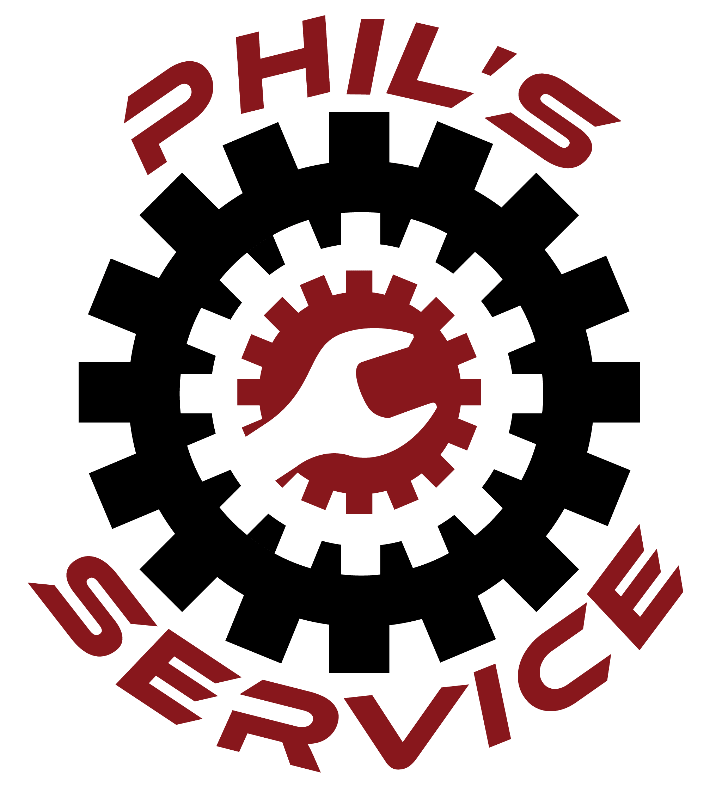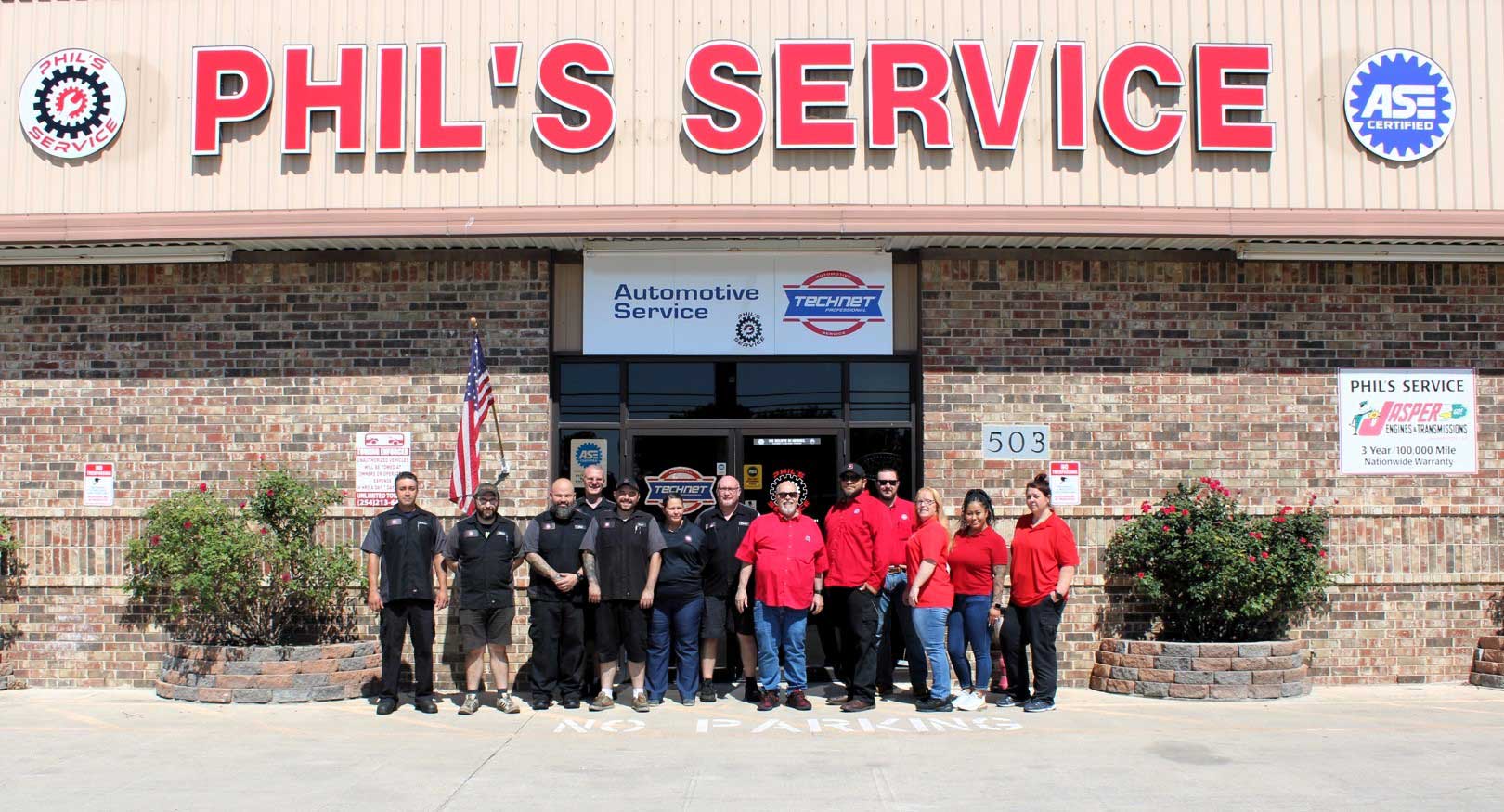The Causes and Solutions for Squeaky Brakes
When people think about impressive car stats, they often think about speed. In fact, the record for the fastest car is an eye-popping 763 mph! Although car speed is notable, the way your car slows to a stop is just as important.
One of the major components of the car that you drive is the brakes. The brakes safely and efficiently stop your car from moving.
When brakes work the way they should, chances are you don't give them any thought. When your brakes start to squeak, you know it's something you can't ignore.
If you've noticed your car's brakes squeaking as you stop, we're here to help. We cover everything you need to know about your squeaky brakes and what you can do about them in our guide below.
Types of Brakes in a Car
The brakes on your car are not a one-size-fits-all part. Most cars have one of two types of braking systems. Cars usually have an emergency brake as well.
Drum Brakes
You'll find this type of brake most often on the back wheels of your car. These brakes apply pressure to the outside of the brake drum using brake pads to slow a car down. These brakes aren't used that much anymore in cars because they aren't as reliable as disk brakes.
Disk Brakes
Most cars have this type of brake in them. These brakes have a brake pad that puts pressure on the brake as you slow your car down. Disk brakes slow a car faster and more reliably than other kinds of brakes.
Emergency Brake
Most cars are also equipped with an emergency brake. You'll only need to worry about this brake in the event of an emergency, like if your main brakes fail. Many times, people use the emergency brake when they are parking as extra security.
Causes of Squeaky Brakes
Squeaky brakes can range from a temporary problem to something more serious. When you hear the squeak, you'll want to try to figure out if your problem needs professional help.
If the brake noises go away in a day or so, it was most likely a superficial problem. Brakes that continue to squeak will need more attention to keep you safe.
Worn Out Brake Pads
When you push on your brake, the brake comes into contact with a brake pad. This device puts pressure on the brake rotors and helps your car come to a stop.
Brake pads take on a lot of extreme friction each time you bring your car to a stop. Changing brake pads is part of regular maintenance for your car.
Brake pads have a built-in warning system when they are getting too worn down. The brake pad has a metal indicator built into it. It will make a loud sound when the brake pad gets too thin.
You won't be able to ignore the sound the brakes make when the brake pad is too thin! Your loud brakes should be a pretty good signal that you may need new brake pads.
Too Much Moisture
If your brakes sound squeaky when you first get into your car, it could be because they are wet. This is especially common if your car sits outside.
The dew from the night can cause a very thin layer of rust to form on your brake rotors. This thin layer of rust can make your car sound squeaky when you first drive it in the morning.
Dirty Brake Pads and Rotors
Do you find yourself driving under muddy conditions? If you do, your squeaky brakes could be happening because of the dirt and mud built up on your brakes. Dirt can also accumulate on your brakes if you don't drive your car often.
Brake Pad Material
Brake pads come in several material types. You can find brake pads in semi-metallic, organic, and ceramic styles.
Most people have semi-metallic brakes on their cars. These brake pads have a high percentage of metal in them. That means when you brake, you may hear more squeaking than with other types of brake pads.
Fixing Squeaky Brakes
Once you've figured out why your brakes are squeaking, it's time to get them fixed. Some fixes are simple and some are more extensive.
Greasing Brake Pads
If you've just replaced your brake pads and they are still making noise, a bit of grease may do the trick. Greasing the back of the brake pad can help. Be sure to avoid getting any grease on the surface of the rotor or the front of the brake pad or it won't work the right way.
Replace Your Brake Pads and Rotors
Do your brake pads look thin and worn out? If they do look worn down, it may be time to replace them.
Once the surface of the brake pad wears down, the squealing sound is from the metal hitting metal. You'll need a new set of brake pads every 10,000 miles or so.
Your rotors will also most likely need replacing during the life of your car. They usually last about 50,000 miles before it's time to get them replaced.
Add Brake Pad Shims
If your brake pads don't fit the right way, they could cause loud braking. A set of brake pad shims can do the trick to solve this problem. Most shims come coated in rubber to keep extra squeakiness at bay.
Don't Let Squeaky Brakes Ruin Your Drive
Most people who drive a car will encounter squeaky brakes at least once during their lifetime. While many times this is an easy fix, you don't want to ignore your brakes. Always bring your car to a professional so that you can safely get back on the road.
If you are looking for one of the best brake shops in Killeen TX, look no further than Phil's Service. Our state-of-the-art technology and professional staff will get you back on the road in no time! Contact us for a service quote today!
There are several reasons why you may have squeaky brakes. Learn more about these causes right here along with what to do.
When people think about impressive car stats, they often think about speed. In fact, the record for the fastest car is an eye-popping 763 mph! Although car speed is notable, the way your car slows to a stop is just as important.
One of the major components of the car that you drive is the brakes. The brakes safely and efficiently stop your car from moving.
When brakes work the way they should, chances are you don't give them any thought. When your brakes start to squeak, you know it's something you can't ignore.
If you've noticed your car's brakes squeaking as you stop, we're here to help. We cover everything you need to know about your squeaky brakes and what you can do about them in our guide below.
Types of Brakes in a Car
The brakes on your car are not a one-size-fits-all part. Most cars have one of two types of braking systems. Cars usually have an emergency brake as well.
Drum Brakes
You'll find this type of brake most often on the back wheels of your car. These brakes apply pressure to the outside of the brake drum using brake pads to slow a car down. These brakes aren't used that much anymore in cars because they aren't as reliable as disk brakes.
Disk Brakes
Most cars have this type of brake in them. These brakes have a brake pad that puts pressure on the brake as you slow your car down. Disk brakes slow a car faster and more reliably than other kinds of brakes.
Emergency Brake
Most cars are also equipped with an emergency brake. You'll only need to worry about this brake in the event of an emergency, like if your main brakes fail. Many times, people use the emergency brake when they are parking as extra security.
Causes of Squeaky Brakes
Squeaky brakes can range from a temporary problem to something more serious. When you hear the squeak, you'll want to try to figure out if your problem needs professional help.
If the brake noises go away in a day or so, it was most likely a superficial problem. Brakes that continue to squeak will need more attention to keep you safe.
Worn Out Brake Pads
When you push on your brake, the brake comes into contact with a brake pad. This device puts pressure on the brake rotors and helps your car come to a stop.
Brake pads take on a lot of extreme friction each time you bring your car to a stop. Changing brake pads is part of regular maintenance for your car.
Brake pads have a built-in warning system when they are getting too worn down. The brake pad has a metal indicator built into it. It will make a loud sound when the brake pad gets too thin.
You won't be able to ignore the sound the brakes make when the brake pad is too thin! Your loud brakes should be a pretty good signal that you may need new brake pads.
Too Much Moisture
If your brakes sound squeaky when you first get into your car, it could be because they are wet. This is especially common if your car sits outside.
The dew from the night can cause a very thin layer of rust to form on your brake rotors. This thin layer of rust can make your car sound squeaky when you first drive it in the morning.
Dirty Brake Pads and Rotors
Do you find yourself driving under muddy conditions? If you do, your squeaky brakes could be happening because of the dirt and mud built up on your brakes. Dirt can also accumulate on your brakes if you don't drive your car often.
Brake Pad Material
Brake pads come in several material types. You can find brake pads in semi-metallic, organic, and ceramic styles.
Most people have semi-metallic brakes on their cars. These brake pads have a high percentage of metal in them. That means when you brake, you may hear more squeaking than with other types of brake pads.
Fixing Squeaky Brakes
Once you've figured out why your brakes are squeaking, it's time to get them fixed. Some fixes are simple and some are more extensive.
Greasing Brake Pads
If you've just replaced your brake pads and they are still making noise, a bit of grease may do the trick. Greasing the back of the brake pad can help. Be sure to avoid getting any grease on the surface of the rotor or the front of the brake pad or it won't work the right way.
Replace Your Brake Pads and Rotors
Do your brake pads look thin and worn out? If they do look worn down, it may be time to replace them.
Once the surface of the brake pad wears down, the squealing sound is from the metal hitting metal. You'll need a new set of brake pads every 10,000 miles or so.
Your rotors will also most likely need replacing during the life of your car. They usually last about 50,000 miles before it's time to get them replaced.
Add Brake Pad Shims
If your brake pads don't fit the right way, they could cause loud braking. A set of brake pad shims can do the trick to solve this problem. Most shims come coated in rubber to keep extra squeakiness at bay.
Don't Let Squeaky Brakes Ruin Your Drive
Most people who drive a car will encounter squeaky brakes at least once during their lifetime. While many times this is an easy fix, you don't want to ignore your brakes. Always bring your car to a professional so that you can safely get back on the road.
If you are looking for one of the best brake shops in Killeen TX, look no further than Phil's Service. Our state-of-the-art technology and professional staff will get you back on the road in no time! Contact us for a service quote today!


